Police domestic abuse victim: I just felt despair
- Published
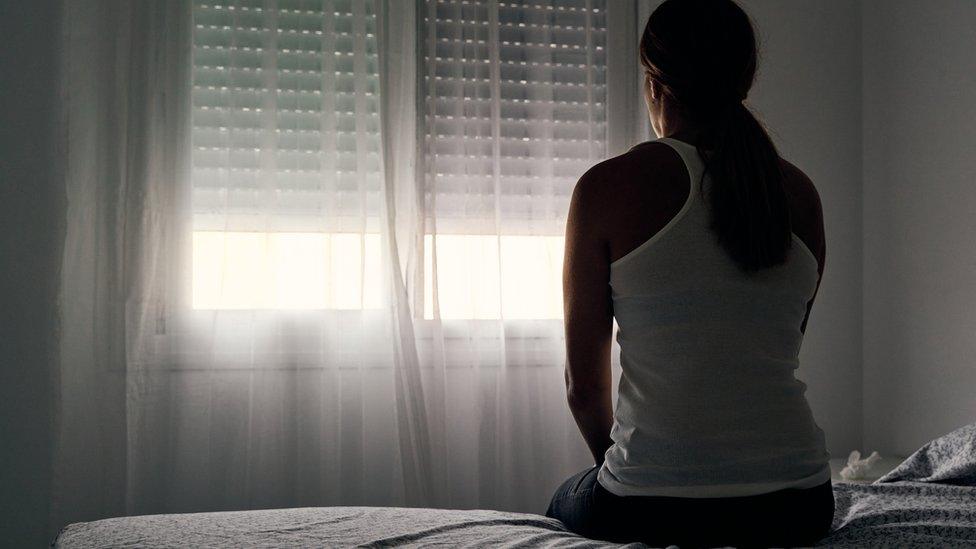
Women suffering domestic abuse at the hands of partners or husbands who work for the police are not having their cases investigated properly, says one charity.
Now a review by three police watchdogs finds there are "systemic deficiencies" in the way some police forces in England and Wales deal with such allegations against their own officers and staff.

Katie was a teenager when she first met her now ex-husband, a police officer.
She said the abuse started when she became pregnant and he would comment on her weight.
"I'd always have to check if it was okay to spend anything," Katie - which is not her real name - added.
She later joined the same police force as him. They eventually separated and she said that was when the abuse became physical and he hit one of their young children.
"I told a colleague and they went to my supervisor who said it was my word against his.
"The exact words were, 'they are police officers, they are to be believed'. I still have flashbacks about that phrase. I remember just feeling despair."
Katie is not alone.
The Centre for Women's Justice (CWJ) said she was one of 165 woman who have told them their allegations of abuse by partners and husbands who work for the police are not being properly investigated.
In one case a complainant discovered that her police statement had been seen by her husband, who was the suspect.
The CWJ, a campaigning charity, brought a "super-complaint" - a way of highlighting wider problems in policing - to three police watchdogs, the College of Policing, Her Majesty's Inspectorate of Constabulary and Fire and Rescue Services (HMICFRS) and the Independent Office for Police Conduct.
In a joint review, external, they looked at 149 cases from 2018 across 15 police forces. Fourteen of these resulted in a charge - 9% of the total. This compared to 11% of all domestic abuse cases in 2018/19 ending with a charge or summons.
Roy Wilsher, from HMICFRS, said the issue had been overlooked nationally in the past and not all forces were treating these cases with the gravity they deserved, and "that was not good enough".
The watchdogs' review found "systemic deficiencies" in the way some police forces in England and Wales dealt with abuse allegations against their own officers and staff.
There was a lack of consistency in ensuring the investigations were impartial, they said.
They also found some forces did not recognise the unique barriers to reporting if the victim also works for the police.
The review recommends:
Chief constables audit all live domestic abuse allegations against officers and staff, and investigations closed in the past year
Such cases should only be investigated by an officer who does not know the suspect or victim, if necessary someone from another force
Such allegations should usually be investigated by a force's professional standards department
The Centre for Women's Justice had called for all investigations to be dealt with by an outside force. It said the report confirmed many of the "extremely concerning issues" it had raised.
Harriet Wistrich, the charity's director, welcomed the lid being lifted on the failures around police perpetrated domestic abuse but called for a public inquiry to carry out a more detailed investigation.
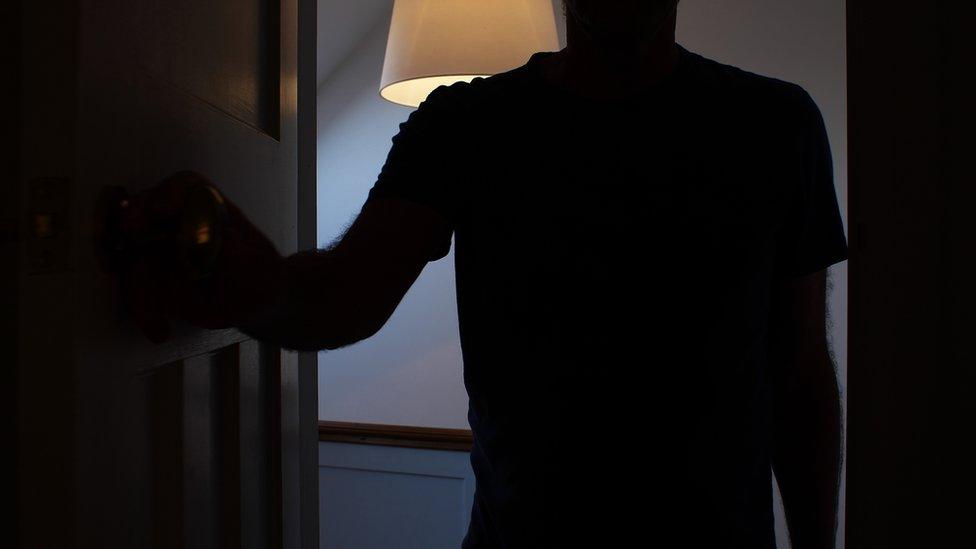
In Katie's case, she faced considerable difficulties making allegations against her ex-partner to officers who had worked with him previously.
"My supervisor suggested I gave him custody of the kids," she said. "I later found out they had worked together in the same department."
Soon after she was given a disciplinary for a clerical error. "I got told you can't go around accusing police officers with no evidence."
Katie said she has since reported this to senior officers and it was now being reviewed.
Her ex-husband would also frequently film her outside her house and when she confronted him, he pushed her, she added.
"I called the control room so my call would be properly logged. The initial officer was absolutely brilliant. But then it went downhill because it got passed to a senior officer who rang me and said: 'You don't want anyone to lose their job over this do you? I'll just have a quiet word with him.'"
The officer had worked with her husband in a previous department, she said.
Katie said she has been treated for post-traumatic stress disorder and has frequent flashbacks but despite her experiences did not want to quit the force.
"I don't want to let this happen to anybody else. I've work to do and - until I see change - my job's not done here yet."

Information and support on domestic abuse
If you're affected by any of the issues in this article you can find details of organisations who can help via the BBC Action Line.
If you feel you are in immediate danger, call the police on 999. If you can't speak, press 55 when prompted to let them know you need urgent help.
Online webchats and text services are also available.


THE MAN WHO MADE PRESIDENTS WAIT: The ascent to power of J Edgar Hoover who ran the FBI for almost five decades
BACK IN TIME TO 18TH-CENTURY PRUSSIA: Greg Jenner and Stephen Fry discuss the life of Frederick the Great

- Published30 June 2022
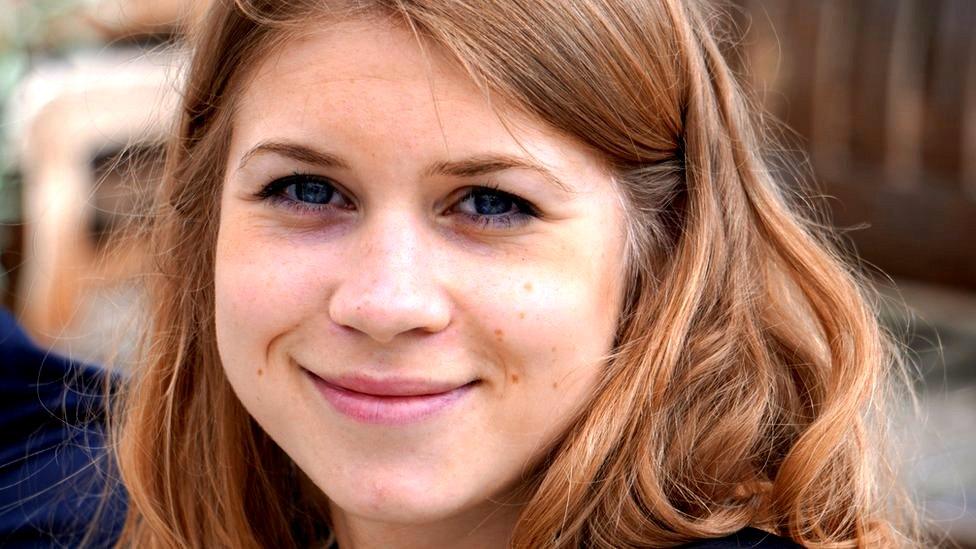
- Published5 May 2022
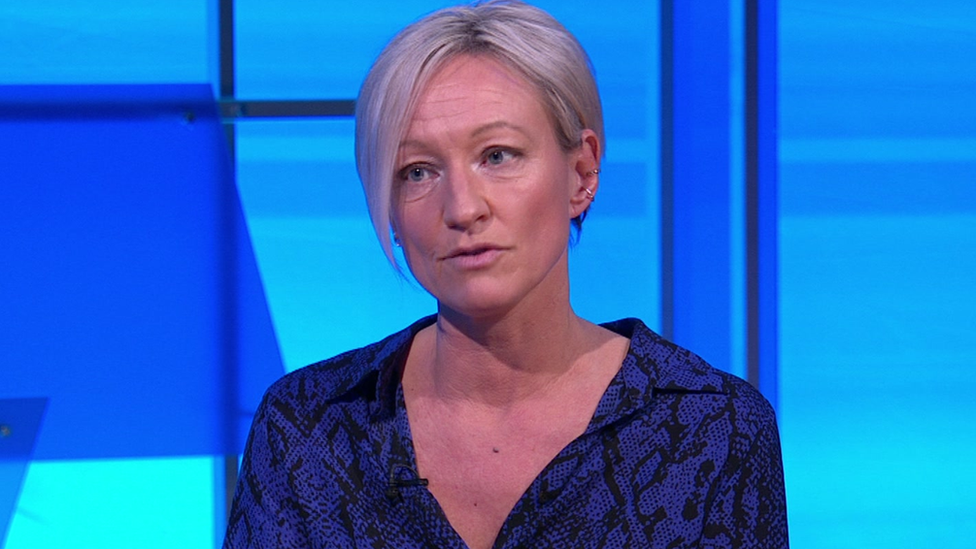
- Published15 June 2021
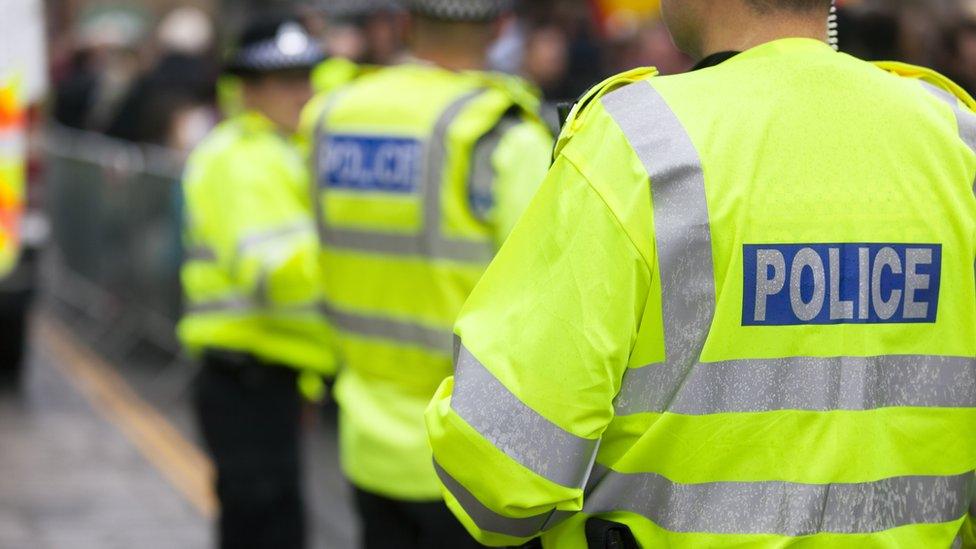
- Published9 March 2020
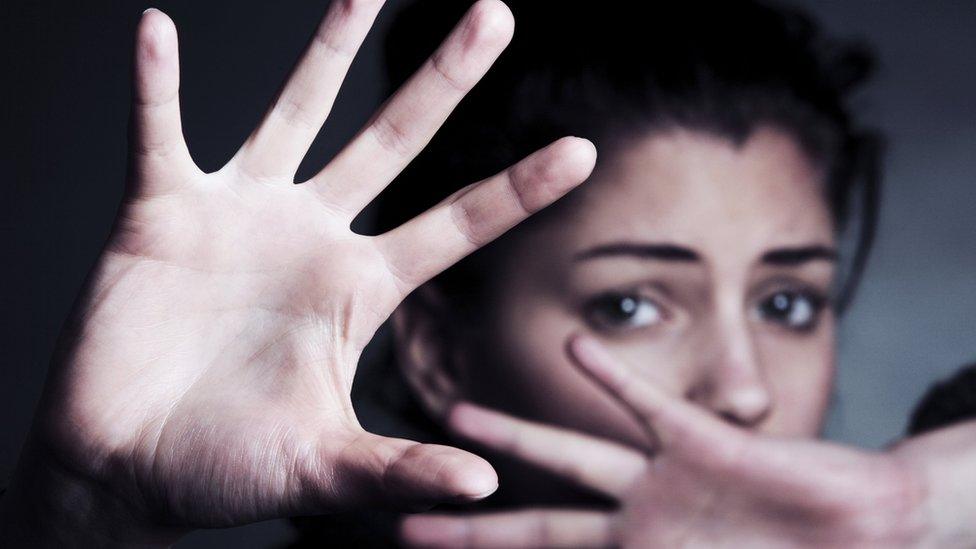
- Published26 November 2018
